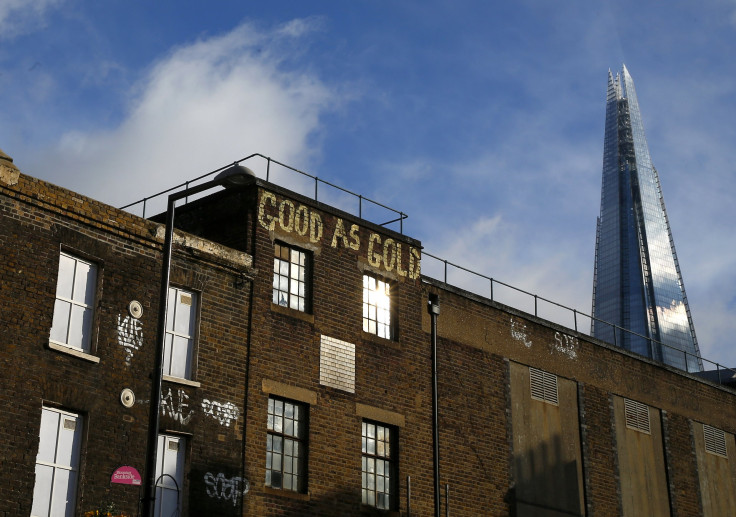London Property Market Rife With Dirty Money: Transparency International

London’s property market is being flooded by corrupt offshore money, with billions of pounds being laundered by foreign criminals and corrupt government officials, according to a report by Transparency International (TI). The scale of corruption in the city has led media reports to call London the world capital for money laundering.
Over 36,000 properties in London have been bought through secret companies located in offshore havens such as the British Virgin Islands and the Isle of Man, according to TI. While the report acknowledged that most of the properties were bought in this manner for legitimate privacy reasons, an unknown number of them are thought to have been bought anonymously to hide stolen money. About 75 percent of properties under criminal corruption investigations are held by secret offshore companies, a practice that one investigator described as being “like putting money in a Swiss bank – they have become ubiquitous for the corrupt,” The Guardian reported.
Anonymous companies in locations like the Virgin Islands can purchase and sell houses in the U.K. without disclosing the buyer's identity. Estate agents who are responsible for brokering the transactions only need to conduct money laundering checks for the seller, meaning that buyers face little to no scrutiny. The Metropolitan Police figures show that the total value of properties investigated in the last decade amounted to over 180 million pounds ($276 million), TI reported.
The massive influx of corrupt money has reportedly distorted London’s property market by driving up prices, and causing a “widespread ripple effect down the property price chain and beyond London,” according to the report. The average asking price for a 3-bedroom apartment in London has increased by over 300,000 pounds since 2007, according to London Property Watch.
Robert Barrington, TI's executive director, said: “This has a devastating effect on the countries from which the money has been stolen and it’s hard to see how welcoming the world’s corrupt elite is beneficial to communities in the UK,” The Independent reported.
Many of these properties reportedly remain unoccupied, with over 700 “ghost mansions” worth 3 billion pounds lying unused, TI reported. In 2014, The Guardian investigated “Billionaires Row,” a stretch of derelict, unoccupied mansions collectively worth 350 million pounds that one property developer called "one of the most expensive wastelands in the world.” They found that 20 of the mansions were held offshore and registered in tax havens.
Much of the money comes from the developing world, with 90 percent of newly-built luxury properties having been bought by overseas buyers. Of these, buyers from Russia, the Middle East, North Africa and China were most highly represented, according to a report by real estate firm Savills, cited by TI.
According to Jon Benton, director of operations of the Metropolitan Police’s anti-corruption unit, the strength of London’s legitimate property market combined with a lack of international oversight makes it attractive for corruption and laundering. “Properties that are purchased with illicit money, which is often stolen from some of the poorest people in the world, are nearly always layered through off-shore structures,” he told TI.
TI criticized the British Overseas Territories for not heeding a call from Prime Minister David Cameron last April to enforce transparency among the owners of locally-based companies and trusts, and urged the U.K. to act unilaterally in the absence of political will from tax havens.
A spokesman for the States of Jersey, one of the tax havens named in the report, told The Guardian it was fully cooperating with law enforcement authorities. “We know the beneficial ownership of all companies incorporated in Jersey and that information is available to law enforcement and tax authorities on request.
“Therefore, there is no reason why the UK police, using the appropriate channels, would not be able to get information on the beneficial owners concerned.”
TI recommended that all foreign companies be required to reveal the names of beneficiaries before buying property in the U.K. and for estate agents to be required to conduct checks on purchasers as well as sellers. "In order to reduce the risk that the UK is used as a safe haven for corrupt money, we want transparency to be established over who owns the companies that own so much property in Britain," TI said, in an online post.
© Copyright IBTimes 2024. All rights reserved.











